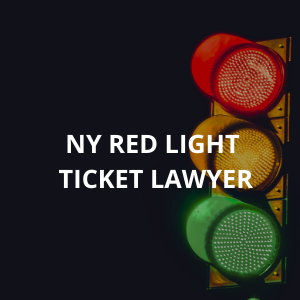How to Deal with Traffic Tickets in Clarkstown: A Simple Guide for Speeding, Cell Phone, and Other Violations
Getting a traffic ticket in Clarkstown can make you feel worried when life keeps you busy. If a cop catches you driving too fast using your phone or breaking another road rule, knowing what to do next can help you feel more at ease. Here's a simple guide to help you handle it all without stress.
1. Know What Your Ticket Means
Start by taking a good look at your traffic ticket. It's full of info about what you did wrong, including which law you broke, and when and where it happened. Check for any errors, like wrong details about your car or the offense. These mistakes might give you a good reason to fight the ticket.
2. Learn the Local Laws
Clarkstown has its own driving rules. Get to know the specific laws that apply to your ticket:
• Speeding Violations: Speed limits change depending on where you are—neighborhoods often have different rules than downtown areas. Check the speed limits and find out what happens if you go over them.
• Cell Phone Violations: New York State law says you can't hold a phone while driving. Get to know this rule inside and out and think about whether you might have broken it without meaning to.
• Other Traffic Violations: Every kind of violation has its own rules and punishments. Taking a look at the New York State Vehicle and Traffic Law can help you understand what you're dealing with better.
3. Choose How to Deal with the Ticket
When you get a traffic ticket, you have a few ways to handle it:
• Plead Guilty: Accept the ticket's punishment, which means you pay a fine and might get points on your driving record. This can also make your insurance rates go up.
• Plead Not Guilty: If you think you didn't do anything wrong, you can fight the ticket. You'll need to ask for a court date and show proof to back up your side of the story.
• Negotiate a Plea Bargain: In some cases, you can talk to the prosecutor to lower the charge. This might lead to a smaller fine or fewer points on your license.
4. Prepare for Court
If you choose to contest the ticket or negotiate, getting ready is crucial:
• Collect Evidence: Get any proof that backs up your case, like pictures, statements from witnesses, or GPS information. If your ticket is about phone use showing you weren't using your phone as claimed could help.
• Study the Law: Knowing the specific traffic rules that apply to your case can help you make a stronger case in court.
• Think About Legal Help: Based on how serious the violation is, it might be worth talking to a traffic lawyer. They can give valuable advice and stand for you in court.
5. Go to the Court Hearing
Get to the courthouse on time and wear suitable clothes. If you have a lawyer, they'll manage most of the process. Be set to answer questions and show your evidence.
6. After the Hearing
Once the court has decided:
• Do What the Court Says: If they rule against you, make sure you pay any fines or follow other penalties as told. It's key to meet these duties.
• Look at Your Driving Record: Check if they've added points to your license. Getting too many points can make your insurance cost more or even get your license taken away.
• Think About Traffic School: Taking a safe driving class might help cut points on your license and maybe lower your insurance costs.
7. Stop Future Tickets
To cut down on the risk of more violations, remember these pointers:
• Stick to Speed Limits: Pay attention to and obey posted speed limits.
• Don't Use Your Phone: Go for hands-free options or stop somewhere to make a call.
• Keep Yourself Informed: Stay in the loop about any shifts in traffic laws and rules.
To Sum Up
Dealing with traffic tickets in Clarkstown doesn't need to stress you out. When you know what your ticket means get ready for court, and try to avoid future mistakes, you can handle the process more and lessen the effect on your driving history and wallet. If you take action and stay informed, you'll have the best shot at managing and sorting out any traffic violations well.






